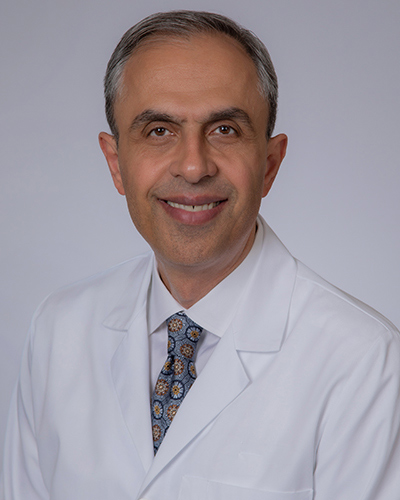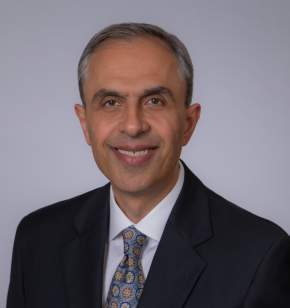Brain Aneurysm: Aaron Cohen-Gadol, MD – Brain Aneurysm Doctor

- Who is the best brain aneurysm doctor?
- Why Choose Dr. Aaron Cohen-Gadol for Brain Aneurysm Care?
- What Is a Brain Aneurysm?
- Brain Aneurysm Risk Factors
- Brain Aneurysm Symptoms
- Brain Aneurysm Rupture: A Medical Emergency
- How Dr. Aaron Cohen-Gadol Treats Brain Aneurysms
- Preparing for Your Consultation
- FAQs
- Contact Dr. Aaron Cohen-Gadol, National Brain Aneurysm Specialist
- Getting There
When it comes to brain aneurysm care, the expertise of a highly skilled and experienced doctor is essential. Dr. Aaron Cohen-Gadol, a renowned neurosurgeon and one of the best brain aneurysm doctors, offers cutting-edge treatments and compassionate care. If you’re searching for a brain aneurysm specialist near you, Dr. Aaron Cohen-Gadol’s practice is committed to delivering exceptional care.
Who is the best brain aneurysm doctor?
Dr. Aaron Cohen-Gadol is widely regarded as one of the best brain aneurysm doctors, known for his expertise in treating both complex and hard-to-reach aneurysms. He has performed thousands of intricate cerebrovascular procedures using advanced microsurgical and minimally invasive techniques, earning global recognition for his precision and outstanding outcomes. As the founder of the renowned Neurosurgical Atlas, Dr. Cohen-Gadol continues to advance education and innovation in aneurysm care while providing highly individualized, patient-centered treatment.
Why Choose Dr. Aaron Cohen-Gadol for Brain Aneurysm Care?
Dr. Aaron Cohen-Gadol is a leading neurosurgeon who specializes in brain aneurysms with over two decades of experience in the field. As a nationally recognized brain aneurysm doctor, he is known for his innovative treatment options and his patient-centered approach to care. His practice is dedicated to providing the highest level of medical expertise to people dealing with a brain aneurysm and ensuring that each patient receives personalized and comprehensive care.
What sets Dr. Aaron Cohen-Gadol apart from others is his commitment to using the most advanced techniques available for the treatment of brain aneurysms. He offers a range of treatment options, including minimally invasive surgery and state-of-the-art endovascular procedures, tailored to each patient’s unique needs. His focus on long-term outcomes, patient safety, and recovery ensures that his patients receive the best possible care.
Why should you have your surgery with Dr. Cohen?
Dr. Cohen
- 7,500+ specialized surgeries performed by your chosen surgeon
- More personalized care
- Extensive experience = higher success rate and quicker recovery times
Major Health Centers
- No control over choosing the surgeon caring for you
- One-size-fits-all care
- Less specialization
For more reasons, please click here.
What Is a Brain Aneurysm?
A brain aneurysm, also known as a cerebral aneurysm, is a bulge or ballooning in a blood vessel in the brain. This condition occurs when a weak spot in the vessel wall causes it to expand, creating a potentially dangerous situation. If the aneurysm ruptures, it can lead to a hemorrhagic stroke, which is a life-threatening medical emergency.
Brain aneurysms vary in size and location, with some being asymptomatic and others causing significant health issues. Early detection and treatment are critical for preventing complications, especially rupture.
Brain Aneurysm Risk Factors
Although the exact cause of brain aneurysms is not always known, certain factors can increase the risk of developing one.
- Family history: Having a family history of brain aneurysms can increase the risk of developing one yourself.
- High blood pressure: Uncontrolled high blood pressure can weaken blood vessels and contribute to the formation of aneurysms.
- Smoking: Smoking is a major risk factor for brain aneurysms and their rupture.
- Age and sex: Brain aneurysms are more common in adults, particularly those more than 40 years old, and occur more often in women than in men.
- Trauma or head injury: Severe head trauma or injury can sometimes lead to the formation of an aneurysm.
Brain Aneurysm Symptoms
Many brain aneurysms do not cause any symptoms and are discovered only incidentally during imaging for another condition. However, when symptoms do occur, they may include the following:
- Sudden, severe headache: Often described as the worst headache of one’s life.
- Vision impairment: Blurred or double vision can occur.
- Nausea or vomiting: May be accompanied by dizziness or loss of balance.
- Severe neck pain: Often caused by pressure on surrounding tissues.
- Sensitivity to light: A common symptom in people with a ruptured aneurysm.
- Loss of consciousness: In the case of a ruptured aneurysm, unconsciousness or confusion may be present.
If you experience any of these symptoms, especially if they come on suddenly and intensely, it is crucial to seek immediate medical attention from a brain aneurysm doctor.
Brain Aneurysm Rupture: A Medical Emergency
A ruptured brain aneurysm is a medical emergency that requires immediate treatment. When an aneurysm bursts, it can cause a subarachnoid hemorrhage (bleeding in the brain). This type of stroke can result in severe neurological damage, disability, or death.
Symptoms of a ruptured brain aneurysm
- A sudden, intense headache that is often described as “the worst headache of your life”.
- Nausea and vomiting.
- Loss of consciousness or confusion.
- Seizures.
- Sensitivity to light and blurred vision.
If you suspect a rupture or experience any of these symptoms, call emergency services immediately. Early intervention is critical for improving outcomes for those experiencing a brain aneurysm rupture.
How Dr. Aaron Cohen-Gadol Treats Brain Aneurysms
Dr. Aaron Cohen-Gadol employs the latest advancements in neurosurgery and endovascular techniques to treat brain aneurysms effectively. Some common treatment methods include the following:
- Endovascular coiling: This minimally invasive procedure involves inserting a catheter into the aneurysm through the blood vessels; a coil is then placed inside the aneurysm to promote clotting, sealing the aneurysm off and preventing rupture.
- Surgical clipping: In this traditional approach, the surgeon may perform open surgery to clip the aneurysm at its base, preventing blood flow into the aneurysm and reducing the risk of rupture.
- Flow diversion: This newer technique involves the placement of a stent or flow diverter device to redirect blood flow away from the aneurysm, allowing it to heal.
Dr. Cohen-Gadol customizes the treatment plan based on the size, location, and type of aneurysm, ensuring that each patient receives the best possible outcome with the least amount of risk.
Preparing for Your Consultation
following are some steps to help you prepare for your appointment:
- Bring your medical history: Include any relevant family history, previous diagnoses, and medications you are currently taking.
- List your symptoms: Be prepared to discuss any symptoms that you have been experiencing, including their frequency, duration, and intensity.
- Bring imaging results: If you’ve had any computed tomography (CT), magnetic resonance imaging (MRI), or angiographic scans, bring the reports and images with you to the appointment.
- Ask questions: This is an opportunity to ask the doctor about your diagnosis, treatment options, and what to expect during recovery.
FAQs
What is the best hospital for brain aneurysm treatment?
Some of the best hospitals include renowned medical centers such as UCSF Health, Mayo Clinic, Stanford Health Care, the Cleveland Clinic, and Johns Hopkins Hospital. These hospitals have specialized neurosurgery departments with experts who can provide advanced care.
What kind of doctor treats brain aneurysms?
Brain aneurysms are typically treated by neurosurgeons, who specialize in brain and spinal cord surgery. A brain aneurysm doctor has extensive experience in diagnosing and treating these complex conditions.
What is the number one symptom of a brain aneurysm?
The most common and most alarming symptom of a brain aneurysm is a sudden, severe headache, often described as the worst headache of one’s life.
What is the new treatment for aneurysms?
One of the newest treatments for brain aneurysms is the flow-diversion technique, which uses stents to redirect blood flow away from the aneurysm, which can help seal off the aneurysm and prevent rupture and is often less risky than traditional surgery.
Can doctors stop a brain aneurysm?
Yes, doctors can stop a brain aneurysm by using advanced surgical or endovascular techniques designed to prevent it from rupturing. The most common treatments are microsurgical clipping, which seals the aneurysm with a tiny metal clip, and endovascular coiling or stenting, where a catheter is used to place coils or devices inside the aneurysm to block blood flow. These procedures significantly reduce the risk of bleeding and are often highly effective when performed by experienced cerebrovascular specialists.
What is an aneurysm specialist called?
An aneurysm specialist is called a neurosurgeon or cerebrovascular neurosurgeon. These doctors specialize in treating conditions involving blood vessels in the brain, including brain aneurysms, using procedures such as microsurgical clipping and endovascular techniques.
Contact Dr. Aaron Cohen-Gadol, National Brain Aneurysm Specialist
Dr. Aaron Cohen-Gadol is proud to serve patients across the nation with expert care for brain aneurysms. He offers telemedicine consultations and second opinions for patients who may not live near his office. Whether you’re in need of an initial consultation or are seeking a second opinion from one of the best brain aneurysm specialists, Dr. Aaron Cohen-Gadol is here to help.
- Locations served: Nationwide.
- Telemedicine availability: Consultations and second opinions are available through the use of telemedicine.
- Contact: To schedule a consultation or request more information, call (310) 626-1312 or visit here.
Don’t wait until symptoms worsen; reach out to Dr. Aaron Cohen-Gadol today and take the first step toward the care you deserve.
Getting There
The clinic is located at Cedars Towers East which is at 8631 W 3rd Street, Suite 815E, Los Angeles, CA 90048, near Beverly Grove. It’s easily accessible from San Vicente Boulevard or La Cienega Boulevard. Paid parking is available in the adjacent structure and limited street parking can be found nearby. For navigation, entering “8631 W 3rd St” into GPS will direct you to the main entrance.
The entrance to the Cedars Towers East parking garage is on Sherbourne Drive, located just north of 3rd Street. It is a self-parking garage with the address 217 S Sherbourne Dr, Los Angeles, CA. The entrance is on the right if you are traveling south on Sherbourne, or on the left if you are traveling north on Sherbourne. You then need to take the parking elevators to the plaza level and then cross the short bridge to use the East elevators to reach the 8th floor (suite 815.) Allow extra time for traffic and parking, especially during weekday mornings.











